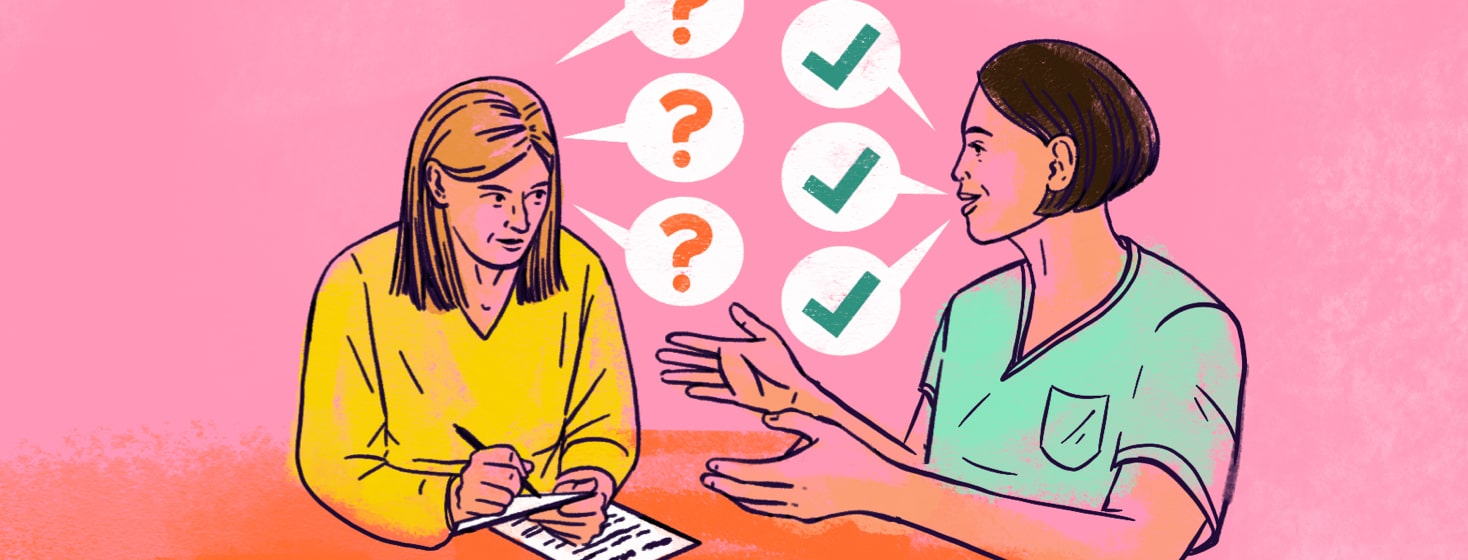Questions COPD Patients Have at the Hospital
There are some basic questions that everyone with COPD should know the answers to. Questions like "What is COPD?" and "What are the best treatment options?"
I want to talk about some deeper questions that I often get asked by patients who have COPD and have been admitted to the hospital. Here are a few:
Common questions heard regarding COPD
I’m short of breath. Do I need more oxygen?
When you are short of breath, it can be frustrating to feel like you are not getting enough air. If your oxygen levels are low, then surely more oxygen may help.
But, if your oxygen levels are normal, increasing your oxygen may not be the answer. This is because low oxygen levels do not just cause shortness of breath.1
In fact, you can feel short of breath and have normal oxygen levels. This can happen when you are experiencing airway obstructions, such as bronchospasm or increased mucus production.
In this case, air and oxygen can get past the obstruction, keeping your oxygen levels normal. However, this air sometimes has a hard time getting back out. This can make it feel as though you can't catch your breath.1,2
Increasing your oxygen may not be the solution. Potential solutions include using your rescue medicine, using breathing strategies or devices that help with coughing, or other treatments that address the underlying cause of airway obstruction. Always consult your doctor if you are having shortness of breath.
I was diagnosed with COPD and never smoked. How could that be?
While it is true that cigarette smoking is a common cause of COPD, it is a misconception that cigarette smoke is the only cause of COPD. There are many things that can cause COPD. 3-5
Those causes include things like long-term exposure to air pollution, such as secondhand smoke, traffic fumes, or industrial pollutants. Long-term exposure to dust and fumes in the air at work, such as those found in mining, construction, or manufacturing.Genetic factors, such as alpha-1 antitrypsin deficiency, as well as long-term asthma.
COPD can also be caused by a combination of factors. For example, someone who smokes and is also an asthmatic is likely at a higher risk of developing COPD than someone who only smokes.5
I have end-stage COPD. Does this mean there are no options for me?
End-stage means that it is the last of the four stages. It is the “end stage.”
The purpose of staging COPD is so that you and your doctors know where you are, and so they can make adjustments to your treatment plan. This is important, as now you know that you have it, you are at this stage, and so this is what actions you should take to prevent it from progressing. It is a way of guiding doctors as to the best treatment plan for you.
Staging is in no way a predictor of how long you will live. I have seen many patients live with stage 4 COPD for many, many years. The term “end stage” can be a harmful term.
I prefer the term “severe COPD.” It simply means that you have more symptoms and your lung function is more impaired than someone with mild or moderate COPD. Severe is a kinder term that essentially means that you need to take it seriously, and you will probably require some form of treatment.
How long do I have to live?
I was asked this question on my very first day on the job. Internally, I thought, “What do I say to this poor lady?” All I could do was stand beside her in my silence, showing her that way that I cared and had empathy for her.
Since then, I have been asked this many more times, and I have also had time to reflect. Today, my typical response is, “Only God knows how long you will live.”
What questions do you have?
So, there you have it. My answers to some of the deeper questions that often come up during my conversations with COPD patients. These questions, while complex, are important to address because they can significantly impact your understanding of the condition and your quality of life.
Now, I want to turn the tables and challenge you, my fellow experts, in living with COPD. What are your burning questions about COPD?
Share your thoughts, and let's continue this conversation and support each other in this journey.

Join the conversation